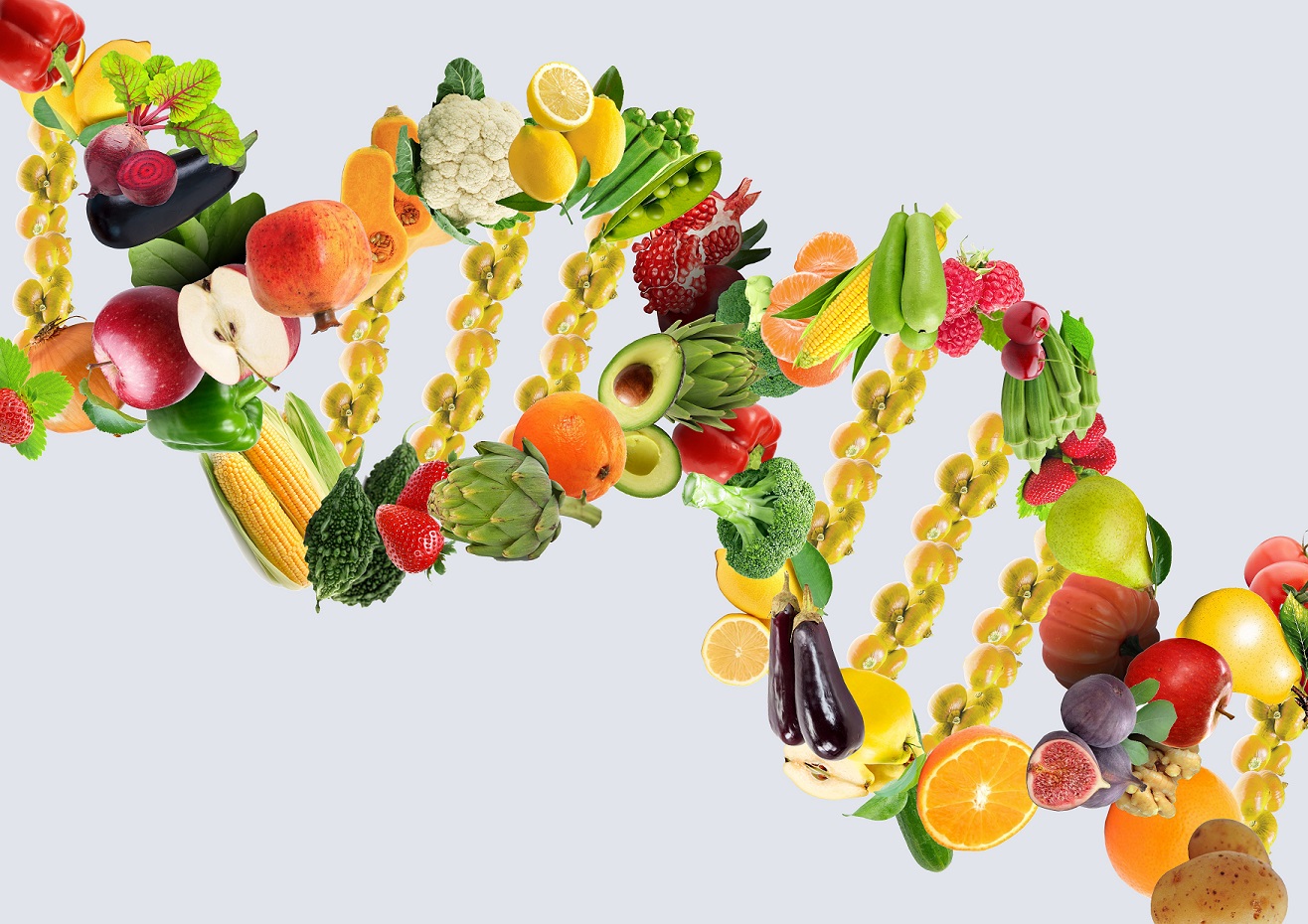Nutrigenetics: What Food Does Your DNA Crave?

Written by: Jamie June 23, 2019
Being aware of your specific genes can help you make more informed decisions about the foods and exercises that are right (or wrong!) for your body—all of which can help prevent health problems later down the road*.
What is Nutrigenetics?
In a previous blog post we discussed nutrigenomics, or how the nutrients in food affect gene expression. Nutrigenetics, on the other hand, is your individual response to nutrients. For example, there is a gene associated with the ability to taste bitterness in food. If you have this gene, you’re more likely to enjoy things like dark coffee, Brussels sprouts, and broccoli—and as a result, you may naturally eat more healthfully.
What does this mean for you?
Other than learning fun facts (like your dark beer preferences!), DNA testing can also teach you about which diets will be more effective for you genetically, your likeliness of being overweight, or any possible risks for certain vitamin deficiencies.
No, your genes do not decide everything, but knowing can help guide you in your decisions. Maybe at your next annual checkup, you ask for a Vitamin D test if you find out you are likely to be deficient. Or you might give up on trying to learn to love kale knowing that your genes don’t like it and embrace your love of spinach instead!
What can you do about it?
- Get your genes tested with Secret Sequence!
- If you drink alcohol (especially if more than two servings for women and three for men in a single day) it would be beneficial to know if you have any of the gene mutations that put you at a greater risk for cirrhosis or fatty liver disease since alcohol consumption is a known contributing factor to these illnesses.[1]
- If you find out you are predisposed to having certain vitamin deficiencies or surpluses, talk to your doctor and take action. For example:
- There is a gene associated with higher beta carotene levels; knowing you having this might influence your food and vitamin choices.[2] The body converts beta carotene to vitamin A. This is the stuff that is good for your eyes and makes carrots orange! Usually high levels of beta carotene are not dangerous (in food not supplement form), so that carrot addiction will unlikely harm you. However, if you are a smoker with this gene, limiting your intake of food and supplements rich in this nutrient is very important as it can be toxic![3]
- Both high and low iron levels can be dangerous, and there are gene mutations that contribute to both. Knowing if you are at risk for either is very important: High iron, for example, can cause heart and liver failure. You would want to limit foods high in iron like shellfish, red meat—and even chocolate![4] We will explore this further in a later post.
What Comes Next?
These are just a few examples of the many ways you can benefit from Nutrigenetics; there is much more information already available, and new research on the topic is being done every day. You have the ability to learn more about your DNA, so why wouldn’t you want to learn what changes can make you a healthier you?
One more important reminder: you need to be in control of who you share that information with. Secret Sequence will never sell your data—we never even ask for your name! Safely learn more about yourself and your health: order our Nutrition, Health and Cancer, and Exercise reports today!
*Disclaimer: All information, content, and material of this website is for information purposes only and are not intended to serve as a substitute for the consultation, diagnosis, and/or medical treatment of a qualified physician or healthcare provider.
References:
[1] A polymorphism in the Irisin-encoding gene (FNDC5) associates with hepatic steatosis by differential miRNA binding to the 3′UTR Metwally, Mayada et al. Journal of Hepatology, Volume 70, Issue 3, 494 – 500
[2] https://www.snpedia.com/index.php/Rs6564851
[3] http://pennstatehershey.adam.com/content.aspx?productId=107&pid=33&gid=000286
[4] https://www.mayoclinic.org/diseases-conditions/hemochromatosis/symptoms-causes/syc-20351443
